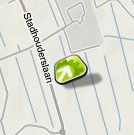Combatting Login CSRF with Symfony
Cross-site Request Forgery (CSRF) is one of the traditional vulnerabilities that web applications have to deal with. Every web framework - including Symfony - supports CSRF protection out of the box. A lesser known vulnerability is Login CSRF, a special kind of CSRF attack.




